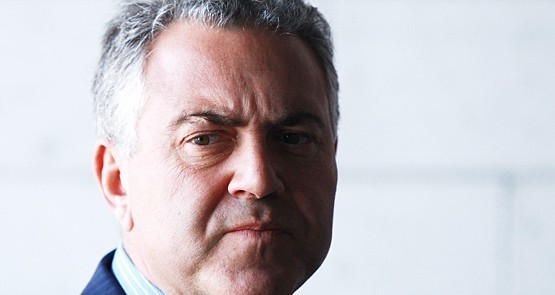Last week, Treasurer Joe Hockey won his defamation case against Fairfax in relation to two tweets and a poster using the eye-catching headline “Treasurer for Sale”. The articles under the headlines detailed the fundraising activities of the North Sydney Forum, whose members pay for privileged access to Hockey.
Although the tweets contained a link to the online version of the article and, in the case of the second tweet, a summary of the linked article, Federal Court Justice Richard White held that the tweets should be considered separately without reference to the articles they hyperlinked.
The decision has sparked renewed debate about the adequacy of defamation laws in Australia and concerns about whether the decision has exposed ordinary users of social media to liability. It also raises questions about whether we need reform to better protect political debate in a democratic society where we don’t have the right to freedom of speech.
This is not the first time a court has ruled that a tweet can be defamatory. In 2014, Judge Michael Elkaim of the NSW District Court awarded $105,000 to a schoolteacher who was defamed by a former student through posts on Twitter and Facebook. However, because the Hockey decision is the first time an Australian politician has successfully sued for defamation over a tweet, it is worth considering whether defamation laws might be used to halt genuine political debate on social media.
In the social media age, what was once private is now public, and what was once an idea shared with a room of people is now an idea disseminated to the world. In such an age, how can ordinary social media users participate in open political debate, through a medium designed to empower users to create and share ideas, if they can be slapped with a lawsuit from a politician?
The fallout from Hockey’s “win” will probably make editors think twice about the headlines they plaster on posters and the 140 characters they use to entice readers to click on a link, but it shouldn’t change the stakes for ordinary social media users who are freely disseminating their honest opinions.
As White explained, the general principles of defamation law require that an ordinary, reasonable reader would understand the defamatory meanings imputed by the tweets. If the publication is a serious publication, the reader may be taken to read it more cautiously and critically.
That’s not to say that individual tweets are not capable of being defamatory in their own context, but the ordinary reader would not infer the same meaning from a random tweet as she would a newspaper article supposedly reporting facts rather than opinions.
Furthermore, Twitter users may be able to rely on the defence of honest opinion, which is that they are expressing an opinion that they honestly hold, which is based on proper material.
However, this protection for ordinary Twitter users remains unclear. There are close to 2.8 million Twitter users in Australia, which means there are 2.8 million “publishers” who would benefit from clearer defamation laws. But perhaps the question is not just whether those are the laws that need reform, but also whether Parliament should focus on protecting “speech” in its many forms in this digital age.
There are 23 million Australians who would benefit by having their right to political debate and opinion protected. This protection could come in the form of narrowing rights in defamation, but it could also come from widening our implied constitutional right to political communication.
Our current defamation laws favour the rich and the litigious, yet opponents of a bill of rights or similar legislation argue that it will increase litigation by individuals.
Wouldn’t it be better to have legislation that gives individuals a right to free speech and a mechanism to defend it, instead of legislation that allows those people who can afford the legal fees the right to teach naughty newspapers a lesson in how limited our right to public debate can be?
Giri Sivaraman is a principal, and Nita Green a trainee lawyer with Maurice Blackburn Lawyers in the firm’s employment and industrial practice.








Why do you continue re-running this trifling story? If people are so stupid and drunk they can’t handle libel laws they should watch ABC Theatrical Drama series such as Q. & A. instead.
I imagine Hockey is overjoyed at finally achieving something his boss can be proud of.
Those defamations occurred before the first budget. Can his reputation now be damaged? Does it exist?
The decision in favour of Hockey was the next in many disgraceful decisions from judiciary. The general public is sick and tired of a legal system which favours the rich and powerful and hands out harsh treatment to most of the down and outers in the country.
The issue which Hockey got his decision on was is a sham. Either the article has a basis or it did not. Quite clearly IT DID.
Given that most of the larger media outlets are controlled by the rich and their business interests it should come as no surprise that these outlets are little more than propaganda outlets for the big end of town….the LNP….of which Hockey is a member.
The real questions: did Hockey meet funding providers? Were the large sums of money paid strings free or were they payment for services to come. Those amongst us who are not brain dead would understand the old saying “follow the money trail”. In this case it led from wealthy Australians (with needs?) straight to this government….wanting to be re-elected whilst hated by a large number of ordinary AUstralians under attack day in and day out.
ABout time some of our judges are put out to pasture. This is where some of them belong. Not in a court delivering justice….whatever that seems to be these days.
He could be left with “costs”x2 (Media Watch)?